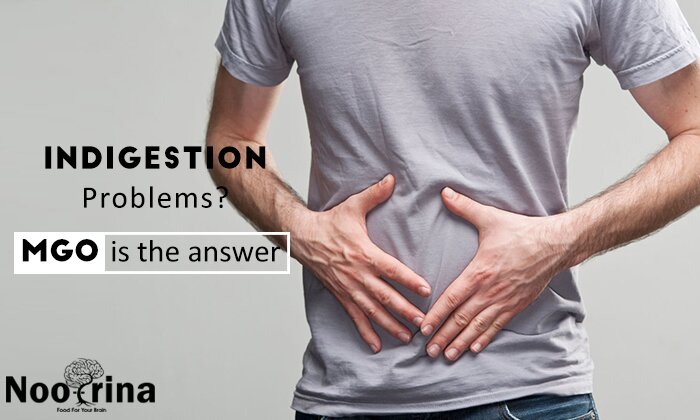What Causes Indigestion In The Body?
Indigestion, also known as dyspepsia is a condition characterized by abnormal functioning of the gastrointestinal organs. It is an uncomfortable feeling of fullness which can occur during a meal or thereafter. Indigestion affects thousands of people worldwide. While it may seem like a normal occurrence, this condition can be a symptom of an underlying disease.
Indigestion affects people of all ages and gender. The risks of indigestion increase due to:
- Use of certain medication which may cause stomach irritation
- Excessive consumption of alcohol
- Depression or anxiety
Symptoms of Indigestion
The following symptoms may indicate indigestion:
- A burning sensation in the upper abdomen
- Nausea which can result in vomiting
- Bloating
- Constipation and possible diarrhea
- Belching or flatulence
- Swelling of the stomach
- Acid reflux
How does the Doctor Diagnose Indigestion?
Diagnosing indigestion can be done through a physical exam where the doctor asks the patient to explain their symptoms. From his findings, the doctor may need to carry out further tests which include:
- Doing a microbiologic test to identify the presence of Helicobacter pylori
- Carrying out a complete blood count test
- Running a kidney function test
- Doing an abdominal ultrasound
- Testing for pancreatitis by measuring the levels of the pancreatic enzymes lipase and amylase
- Checking for the presence of blood in the stool
- Running an abdomen MRI or even a CT scan
- Doing a colonoscopy or a capsule endoscopy
Causes of Indigestion
Indigestion can develop as a result of numerous causes. Below is a broad overview of possible causes.
1. Gastritis
Gastritis is the irritation of the stomach's protective lining. Gastritis can be erosive, chronic, or acute. Acute gastritis is characterized by severe and rapid inflammation. Chronic gastritis is an inflammation that can last for a long time if it goes untreated. Erosive gastritis is not very common. While it does not cause severe inflammation, it can cause ulcers and bleeding in the stomach lining.
Risk Factors of Gastritis
- Bacterial infection in the stomach lining
- A weak stomach lining. Digestive enzymes can easily penetrate through a weakened stomach wall hence causing severe damage
- Nonsteroidal drug abuse
- Age. The older one becomes the weaker and thinner the stomach lining becomes.
- Viral infections and surgery
Gastritis can manifest in the following symptoms:
- Feeling full after eating small portions of food
- Indigestion
- Nausea and subsequent vomiting. Sometimes patients may vomit blood.
Gastritis is diagnosed by carrying out a physical exam. The doctor may want to know about the patient's family history. A blood test is carried out to establish the presence of Pylori bacteria. In severe cases, an endoscopy is performed to check the magnitude of the inflammation. Other tests include:
- A barium test
- Digestive Tract X-ray
2. Stomach Ulcers
Stomach ulcers are sores that affect the small intestine or the stomach lining. They develop due to thinning of the mucus which protects the stomach lining from digestive juices. Other causes of stomach ulcers include:
- Prolonged use of drugs such as ibuprofen and aspirin
- Bacterial infection
- Alcohol consumption
- Smoking and hypercalcemia which means the overproduction of calcium.
The most common symptom of stomach ulcers is a burning feeling between the belly button and the chest. This pain usually intensifies on an empty stomach. It can last between a few and several hours.
3. Gallstones
Gallstones are hard components hidden in the gallbladder. They can be tiny or large. The gallbladder is a small organ responsible for storing bile which is secreted by the liver. Gallstones may develop due to:
- Presence of excess cholesterol in the bile
- Production of too much bilirubin (a chemical produced during destruction of old red blood cells by the liver)
Gallstones can affect people who suffer from diabetes mellitus, are obese or have lost weight rapidly in the span of a short period, and people who consume low fiber diets.
How to Treat Indigestion
Mild indigestion can be treated with antacids. Additionally, magnesium oxide has been known to relieve the symptoms of indigestion. Magnesium is a vital nutrient that is responsible for normal body functioning. Though magnesium can be derived from certain foods, it may be hard to get the recommended amount every day. Magnesium oxide is a safe to use supplement which prevents a deficiency of magnesium in the body.
Conclusion
Individuals with severe indigestion should seek medical advice. It is important to consult a doctor before using magnesium oxide to relieve indigestion. Even though magnesium is safe for use, some people may experience moderate side effects.

